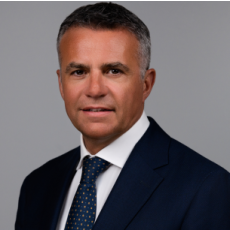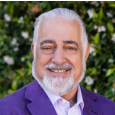Catalent is a global leader in providing advanced drug development, delivery, and manufacturing solutions as a Contract Development and Manufacturing Organization (CDMO), specializing in biologics, gene therapies, and other innovative modalities.
Alessandro, you have been with Catalent for nearly 15 years, but the recent acquisition by Novo Holdings may be seen as the most pivotal moment in that timeframe. What can we expect from Catalent following this change?
As you said, I have been with the company for quite some time, and Catalent has consistently shown its ability to pivot through change for the better. What you see today is the result of consolidating 40 different companies over time. Catalent has evolved from being part of Cardinal Health into a private company, then a public company, and private once again, this time under Novo Holdings. Each change has made us stronger.
Now, as a private company with a refueled balance sheet, we can invest and grow in key areas like cell therapies, mRNA, and gene therapy—fields that are still young and volatile. This chapter will allow us to bring these assets to maturity and double down on our mission: serving customers and improving patient outcomes. ‘Patient first’ is our core value, and we are fully focused on delivering an unparalleled experience for our partners and patients.
The pivot towards biologics has been a major driver of demand for the services of CDMOs. But challenges around manufacturing costs and access persist. What is Catalent doing to address that?
I believe Catalent is unique in not just entering biologics but becoming a leader in the space. Many tried; few succeeded. Those who did are still minor players, unless they started as biologics companies. We have led this transition while recognizing the challenges of cost and accessibility, and while CDMOs must play a role, we are not the entire solution since we do not control the full drug value chain.
However, we do impact manufacturing costs. Biologics are targeted therapies for smaller populations, meaning smaller production volumes and lower asset utilization, which makes internal manufacturing uneconomical for innovators. CDMOs like us can combine volumes across clients to optimize asset use. On top of that, AI can reduce waste and improve right-first-time outcomes. We are investing in AI-driven process improvements, digital twins, and predictive modelling—all aimed at reducing costs and improving productivity in biologics manufacturing.
What is the recipe for Catalent’s achievements in its pivot to biologics?
It starts with our mindset. Catalent has always embraced change, and that takes courage, ambition, and a tolerance for occasional failure. You need internal honesty to admit what is not working, correct it quickly, and keep innovating. That attitude has been central to our success. For example, we invented Softgel and Zydis technologies—best-in-class innovations in the CDMO space.
Our foundation in premium small molecule products gave us the cash flow to invest in biologics at scale, both organically and inorganically. That enabled us to scale quickly and attract top-tier talent—PhDs, scientists, engineers. We also obsess over our clients and our people. We strive to be the best place for customers and employees alike. I am a product of that environment, having grown through the ranks from operations director in Italy to CEO. This is a company where everyone can thrive.
There is a trend of growing consolidation in the CDMO space. What do you see as the key drivers behind this?
To be the best partner to clients, especially early-stage biotech companies, CDMOs need a full-service ecosystem—from lab work and formulation to clinical production and supply chains. That requires scale and end-to-end capabilities. Drug development is also increasingly global and complex. Regulatory requirements differ across regions, sometimes even requiring separate trials for specific geographies, so geographical presence is essential.
Another major factor is that biotech companies now have to go further in the development cycle before exiting—often to Phase 3 or even product launch. That means they need partners who can support them all the way. Add to that the capital intensity of biologics manufacturing, and it is clear why balance sheet strength and scale are so important. While economies of scale matter, they are not the only driver—having the infrastructure and reach to support biotech from start to finish is critical.
Looking ahead, what steps are you taking to drive growth at Catalent?
Despite a challenging couple of years for the CDMO industry, Catalent has emerged strong after the post-pandemic correction. The broader industry trends are very favorable. The pipeline of drug candidates is growing, and we are positioned to support emerging modalities—gene therapy, cell therapy, mRNA, and even innovative small molecules. It is an exciting time from a scientific and technological perspective.
Yes, there is some short-term uncertainty—geopolitical tensions, monetary policy, capital markets. But once the macro picture settles, the capital currently sitting on the sidelines will return. That is crucial for our biotech clients, most of whom do not yet generate revenue and rely on investment to progress their pipelines. Catalent has global scale, top-tier assets in the right geographies, and, I believe, the best CDMO team in the world. While I cannot predict the curve of our growth exactly, I am confident that strong, profitable growth lies ahead.





